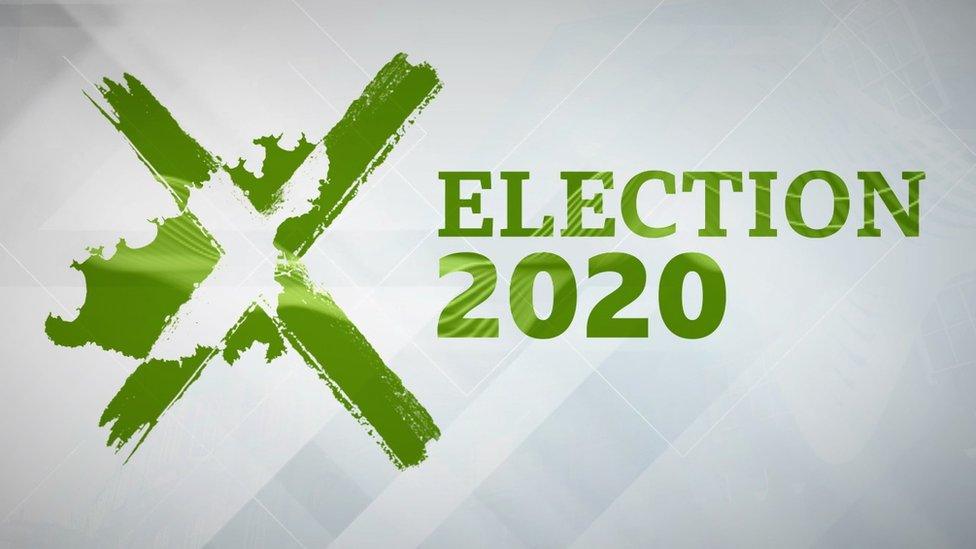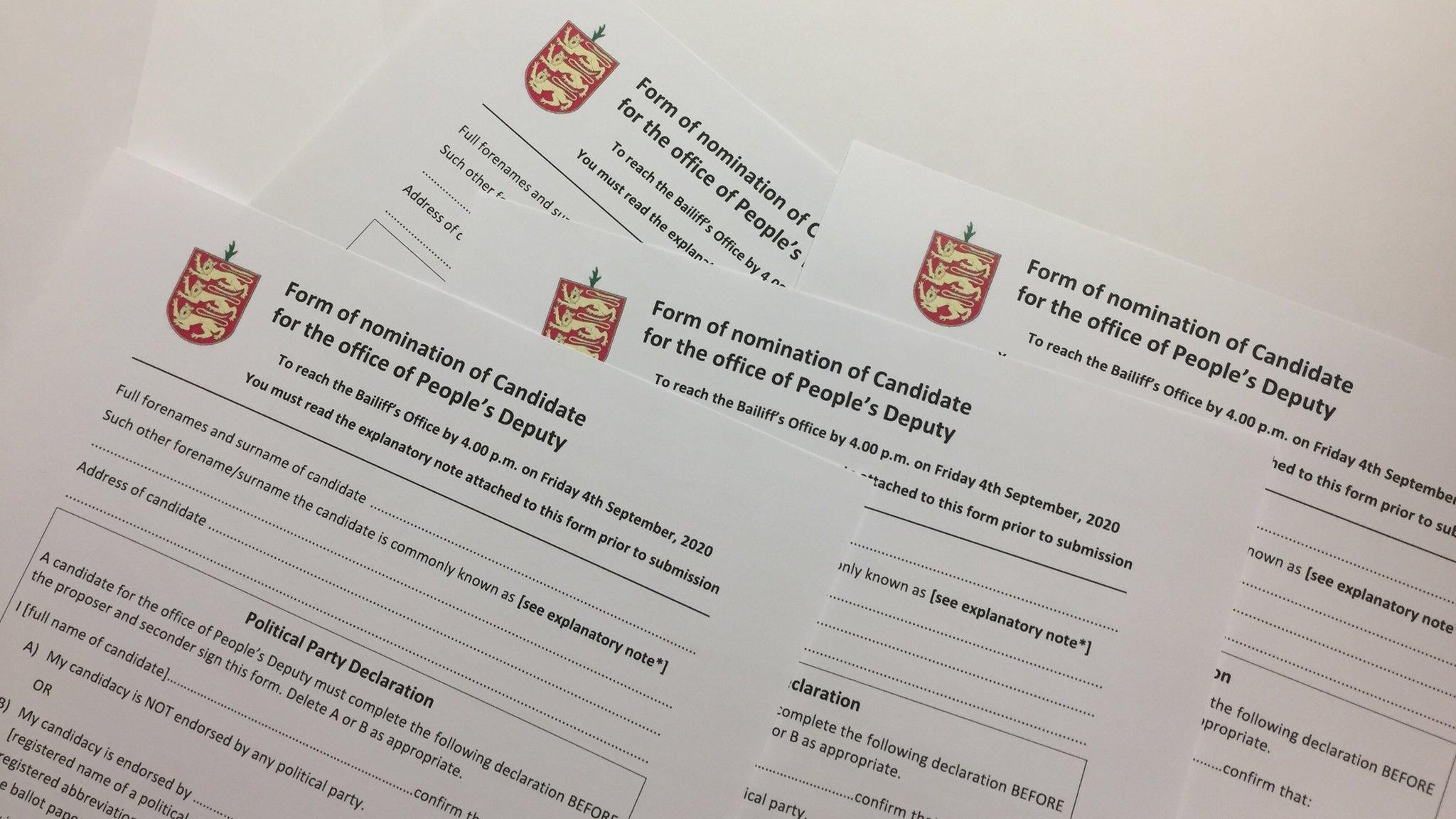Guernsey Election 2020: Future of taxation
- Published

What to do with Guernsey's tax system is a complex question facing the new States, particularly in the context of the coronavirus pandemic.
The States has provisionally agreed up to £650m worth of borrowing and reserve funding to assist the recovery.
Personal tax is currently a flat rate of 20% on annual earnings above £11,575 for the majority of islanders.
Corporation tax for companies ranges between 0 and 20%, depending on the nature of their business.
Among the options for increasing revenue is a Goods and Services Tax (GST) on local and imported purchases.
As part of our election coverage, the BBC offered all candidates a chance to comment on a key issue.
On the issue of taxation they were asked: What is your view of taxation in Guernsey? Would you recommend changes to the current system?

The Alliance Party responded: "We believe it should be left as is for the next States term, with the possible exception of taxation of those earning in excess of £50,000.
"When we can tell the population what we need and why, we can then decide what, if anything, needs changing."

Craig Bougourd said: "I believe in increasing the personal income allowance.
"Our current allowance is set lower than the UK and other Crown Dependencies.
"Guernsey's living cost is 35% higher than the UK, however our allowance is less.
"I also believe in introducing a tiered tax system to assist lower income earners."

Simon Vermulen, from The Guernsey Party, said: "No to GST, we need to generate income from economic growth.
"We need to keep our taxes as low as possible.
"As we are now entering a post Brexit world, it is timely to review our taxation structures especially around zero-10 as this was a policy specifically influenced by the EU."

Mark Helyar, from The Guernsey Party, said: "My view is that the tax taken in Guernsey is verging on the point of generating decline and reduction of business and individual confidence and opportunity.
"The best means of growing the amount of tax available to the government to provide services is to grow our economy."

Jane Stephens, from The Guernsey Partnership of Independents, said: "Three things need to happen.
"Guernsey decides what standard of services we want and therefore how much tax to raise.
"We concentrate on fair distribution of taxes across income bands and corporates.
"Together we better understand the limitations of the source of current taxation and decide if the tax base should be extended."

Marc Brehaut said: "My case for capital gains tax - that the increase in value of the asset, after purchase parity adjustment of the initial and improvement costs, does not reward the contribution made by society at large towards the resulting profit and it is reasonable to ask for a share."

Philip Smith said: "Taxation in Guernsey is critical to the strength of our economy.
"I believe the current system strikes the right balance in respect of attracting international business whilst putting a minimal burden on our residents.
"I do not recommend any major changes for the next States."

Sarah Hansmann-Rouxel, from The Guernsey Partnership of Independents, said: "Guernsey is too heavily dependent on income tax receipts."
"Since zero-10 was introduced Guernsey's tax structure has been fiddled with at the edges to try to meet the resolution of putting the burden on those most able to pay, but there is still work to be done to achieve this and a wholesale review is required."

Lyndon Trott, from The Guernsey Partnership of Independents, said: "Tax and public revenues are a complex matter.
"Most people recognise that without economic growth, the potential to see Guernsey's tax base rise from 21% of GDP to 24% of GDP, particularly in support of health expenditure is considerable.
"I want to avoid the need for tax increases and that is why I strongly support our need to drive Revive and Thrive."

Lester Queripel said: "Any changes to our tax system needs to be fair, equitable and balanced.
"Ability to pay must be a key consideration in any plans to reform our tax system.
"Territorial tax may be a solution.
"I am totally opposed to introducing GST on the grounds that it's a regressive tax."

Gordon Young said: "I suggest that tax be left as it is for the next two years and not let Covid-19 be an excuse to increase prices of food etc.
"Boat owners are also taxed on fuel more than in Jersey.
"Tax in Jersey for petrol and diesel for boat owners is much cheaper and we're being overcharged."

Sam Haskins said: ""Increasing tax reduces spending power and negatively affects the economy.
"We should encourage spending from both private and public sector and invest in ventures leading to profitable, new businesses and increase revenue.
"I would focus on facilitating economic diversification by reducing barriers.
"We have an opportunity through green finance and impact investment for a win-win scenario."

Ross Le Brun said: "Yes I think we need to look at better ways of getting tax than to try and keep taking more from people who are earning less and spending more to survive.
"I am sat at Saumarez Park cafe at 10:00 every day until the election making myself available to anyone who wants to talk face-to-face.

The BBC also offered the opportunity to answer this question to and Chris Blin, Neil Cave and Ross Le Brun.
The other key issues we've spoken to candidates on include:
- Published4 September 2020
